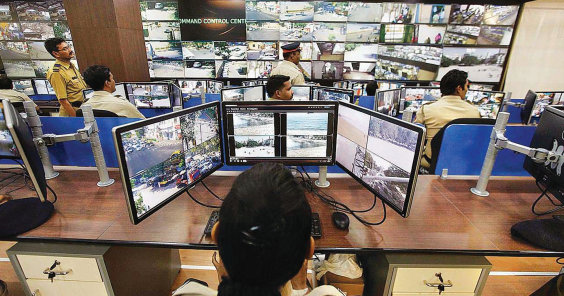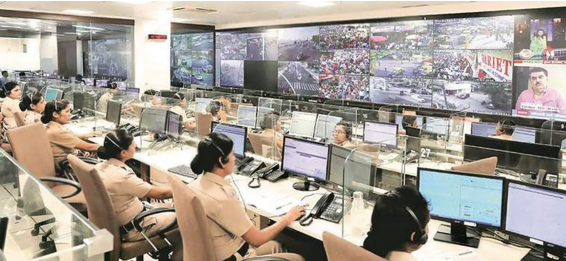An Initiative to Educate Citizens on Cybercrimes
Cybercrime Rok Foundation is a registered Trust under the Mumbai Public Trust Act. We received our registration certificate in August 2024. Previously known as “Cybercrime Rok,” the Foundation was established in 2012 by Shailesh Jaria and Vinith Jain with the mission of raising awareness among millions of mobile and internet users on how to stay safe online and protect themselves from various cybercrimes.
Our aim is to educate the public about the dangers of cybercrimes such as email hacking, phishing, smishing, vishing, online frauds, credit/debit card frauds, shopping frauds, fake online lotteries, identity theft, cyberstalking, harassment, cyberterrorism, and more. We focus on helping individuals understand how cybercriminals exploit the lack of awareness and use advanced technology to target victims.
Since our launch, Cybercrime Rok Foundation has conducted over 1,000 free seminars across India, including in Maharashtra, Gujarat, Rajasthan, Uttar Pradesh, Goa, Delhi, Punjab, and more. These seminars have been held in schools, colleges, universities, NGOs, government institutions, and corporate offices. Our efforts have earned us recognition from World Record India for our outreach and commitment to raising awareness about cyber threats.
Our Seminars
We offer customised seminars based on the audience’s age group, ranging from 2 to 6 hours in length. During these sessions, we focus on educating attendees about the most common cybercrimes affecting their demographic, including scams, hacking, frauds, and identity theft. In addition, we discuss the psychological effects of excessive internet use, such as depression, emotional distress, online addiction, and the negative impact of fake publicity and social comparison.

Over the past 12 years, the CYBERCRINE ROK Foundation has conducted over 1,000 free seminars
and training programmes on Cybercrime Awareness in more than 10 States across India
Our seminars aim to empower individuals with practical knowledge to recognise, avoid, and
report cybercrimes. Topics covered include:
- How to identify and protect yourself from cybercrimes
- Steps to report cybercrimes effectively
- How to stay safe online
- Cybercrime-related laws and how to ensure data privacy
We also offer tailored workshops for specific issues like cyberbullying, sextortion, and scams targeting senior citizens.
Common Cybercrimes and Safety Measures
Email Hacking
Email hacking occurs when a cybercriminal gains unauthorised access to your email account using methods like keyloggers, phishing, or smishing. Once compromised, all your personal information— including emails, contacts, photos, and social media accounts—can be exposed.
Safety Measures
- Enable two-factor authentication for your email account.
- Be cautious of unsolicited emails or requests to update passwords.
- Over the past 12 years, the CYBERCRINE ROK Foundation has conducted over 1,000 free seminars and training programmes on Cybercrime Awareness in more than 10 States across India
- Use strong, unique passwords and avoid reusing passwords across accounts.
- Regularly review your email activity and avoid using password managers that store sensitive data.
Phishing
Phishing is an attack where cybercriminals trick you into disclosing sensitive information (like passwords or credit card details) by pretending to be legitimate organisations. Phishing can also lead to malware installation or data theft.
Safety Measures
- Always verify the sender of emails or messages before clicking on links or providing any personal information.
- Use anti-phishing tools and software to protect against malicious attacks.
- Be cautious when receiving unsolicited messages that offer deals or create a sense of urgency.
Smishing and Vishing
- Smishing: Phishing via SMS, often with fraudulent offers or urgent messages asking you to update your account or personal details.
- Vishing: Voice-based phishing, where attackers call to impersonate legitimate organisations and steal your personal or financial information. Safety Measures
- Avoid responding to unsolicited messages or calls.
- Never share personal details or financial information over the phone or through text messages.
- Verify the authenticity of any offers or updates by directly contacting the company or institution.
Electricity Bill Payment Scams
In this scam, criminals send fraudulent SMS messages claiming that your electricity bill is unpaid and demanding immediate payment to avoid power disconnection.

Safety Measures
- Ignore any unsolicited messages from unknown numbers claiming to be from the power company.
- Always pay your electricity bill through official channels and verify any overdue notices directly with the utility provider.
- Remember that power companies will never ask for payment through text messages or phone calls.
Credit/Debit Card Fraud
This type of fraud occurs when unauthorised individuals gain access to your credit or debit card information and use it for fraudulent purchases. Common methods include card cloning, skimming, and phishing.
Safety Measures
- Always monitor your bank statements and card notifications.
- Use mobile apps to lock your card and set spending limits for additional security.
- Avoid using public Wi-Fi to make online transactions.
- If you suspect fraud, immediately report it to your bank and block your card.
Sextortion
Sextortion is a form of blackmail where criminals coerce victims into sharing explicit photos or videos under threat of exposing them online.
Safety Measures
- Never share explicit images or videos, even with people you trust online.
- Be cautious of strangers who ask for private or personal content during video calls.
- Report any incidents of sextortion to the authorities and avoid paying any money to settle the matter.
Important Resources and Websites
- Cybercrime Helpline: Call 1930 for immediate assistance with cybercrime complaints.
- File a Complaint: Submit complaints online at cybercrime. gov.in.
- StopNCII.org: A free resource to support victims of non-consensual intimate images.
- TAFCOP: Use TAFCOP to check the number of mobile connections issued in your name.
- Have I Been Pwned: Check if your email has been compromised at haveibeenpwned.com.
- DND Service: Activate the Do Not Disturb (DND) service by sending an SMS to 1900 by typing “START0”
- Virus Total: Scan and check files for viruses at virustotal.com.
Cybercrime Rok Foundation is committed to educating individuals and organisations about the risks of cybercrime and providing tools and knowledge to protect against them. We believe that by empowering people with the right information, we can create a safer online environment for all.






